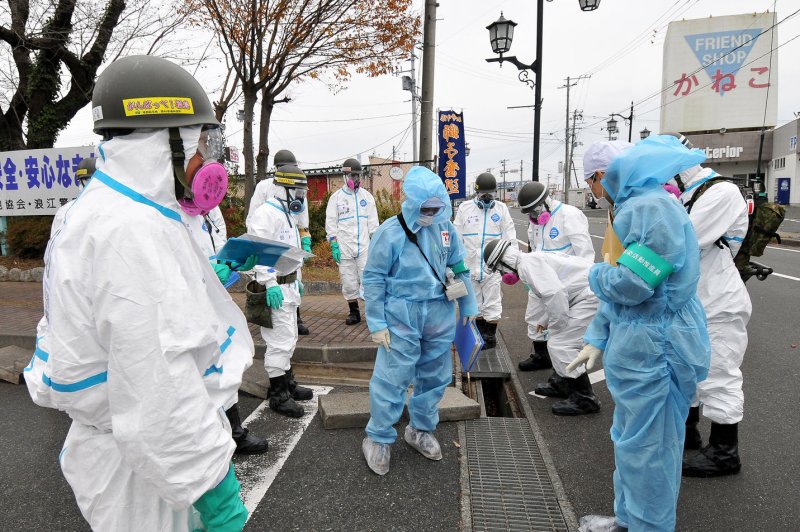
Japanese Prime Minister Yoshihide Suga said contaminated water at the Fukushima No. 1 plant needs attention. Tokyo plans to dispose the water into the ocean. File Photo by Keizo Mori/UPI | License Photo
April 7 (UPI) -- Japanese fisheries representatives say they oppose a government decision to release Fukushima wastewater into the ocean, as Tokyo is expected to soon deliver an ultimatum on the disposal of radioactive water.
Hiroshi Kishi, the head of JF Zengyoren, a national federation of fisheries cooperatives, said he remains "absolutely against" a potential government move to dispose the treated water into the sea, Jiji Press and the Nikkei reported Wednesda
"There has been no change in our position of 'absolute opposition'" to the idea, Kishi said, according to reports.y.
Japan initially planned to dispose of the contaminated water in November, but suspended the decision. The South Korean government also has voiced concerns about the policy, citing environmental pollution and concerns about hazardous waste.
The International Atomic Energy Agency has endorsed Tokyo's plan of disposal. According to Kyodo News, the IAEA had said throwing out the water meets global standards of practice in the nuclear industry.
Japan's fisheries are concerned about how the disposal could affect their bottom line. Despite assurances of safety, the industry is worried customers will stop buying their catch.
"It is
"I want the government to clarify how it intends to respond to such reputational damage."
Japanese Prime Minister Yoshihide Suga met with Kishi on Wednesday. Suga has not made a final decision, Kishi said.
On Tuesday, Suga appeared on a late-night television program to address the issue of the contaminated water in Fukushima, Yomiuri Shimbun reported.
Suga said the water cannot "always be left unattended" and must be disposed of soon.
Water contaminated with radioactive matter continues to be produced at the Fukushima No. 1 plant at a daily rate of about 140 tons, according to the Asahi Shimbun.
No comments:
Post a Comment